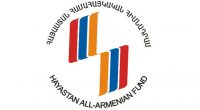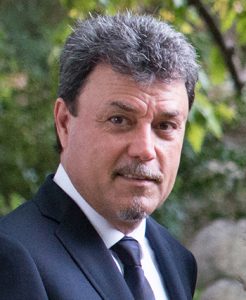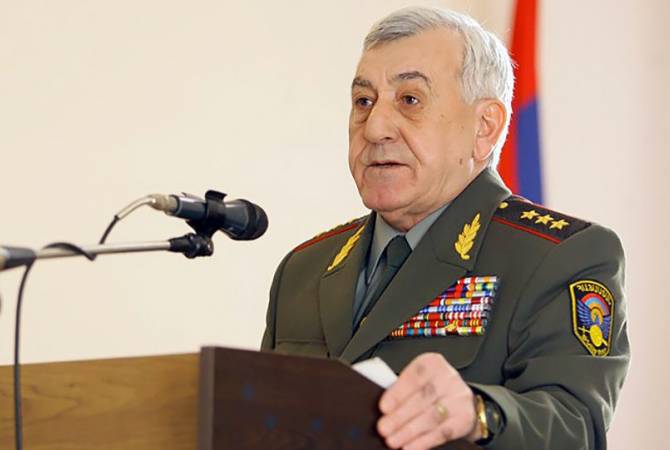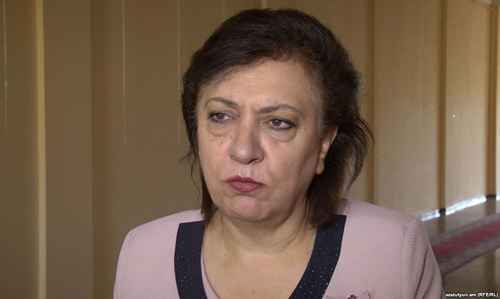Our history of thousands of years is full of many heroes and heroic deeds. Unfortunately, most of them were the result of efforts to get out of problematic conditions or alarming situations. As Baruyr Sevak beautifully expressed: “When there is no way out, crazy people find a way.” And the “crazies”, i.e. the heroes, appear at all milestones in our history, and many times we owe our survival to them. Heroes are those who, stemming from their conviction that there are goals and or plans more valuable than their selves, dedicate their lives to their realization. Therefore, when we look deeper, we will realize that heroism and tragedy are intertwined. Case in point is the” fedayees” of our liberation struggle and our martyred fighters who earned the title of hero during the wars. Heroes will generally and unfortunately have a tragic ending.
Wisdom is the quality of being wise, which includes prudence, judgment, sensitivity, perseverance, etc. When we take a look at our history, we will unfortunately witness that, in comparison with acts of heroism, we have often lacked the wisdom to evaluate situations with an analytical approach and accordingly look for solutions and commit to their implementation.
Wisdom includes the ability to see the big picture, the disinterestedness of preferring the state and national interest over the individual and the faction, the ability to learn from history, as well as the gift and the effort to predict the future and prepare accordingly. Features that is necessary to ensure the progress of any nation. Features that we have unfortunately been poor as a nation and we have not done enough work to improve these weaknesses of ours.
Without delving into the distant past, if we bring the recent thirty years in front of our eyes, we will be convinced that how prosperous our reality would be today, had we acted wisely. Let our words not be considered “Monday morning quarterbacking” when it will be easy to give a “sermon” about the mistakes that happened in the last Sunday’s game. Let us immediately affirm that we had wise leaders, but unfortunately, the voice of those suffering from the disease of partisanship and egocentrism was so loud that it subdued, made them give up the ship or even eliminated them. Those who, seeing the big picture, suggested to secure through compromises what was within our capacity were called traitors. Regretfully, the cries of the mob to liberate Nakhichevan and reach Baku rang louder to those who voiced the advice of the historian Khorenatsi to “lengthen your legs according to your blanket”. Even our citation in one of our articles published in 1997 of the examples of Tunisian President Bourguiba and Egypt’s President Sadat advocating compromises with Israel earned us the label of a traitor.
We had leaders who prioritized the national interest, but they fell victim to opportunists who served as tools in the hands of foreign powers. We had leaders who had studied the history of the First Republic of Armenia and were aware of the remorse of Prime Minister Kachaznuni about getting dazzled by the glare of the unrealistic Treaty of Sevres and thus not entering into a dialogue with the Turks, but the “nationalists” declared them anti-nationals for advocating such a course. And the actions of those who profess the “all or nothing” mentality brought us to this day, which is closer to nothing than to all.
We have written about all of these in our articles published in the “Massis” Weekly newspaper since 1991, citing examples from the distant and recent past to get out of our stereotyped way of thinking and embrace a mentality that keeps pace with international developments. We have repeatedly emphasized the need to transcend from factionalism to nationalism, from self-deception to self-knowledge, from partisan to state thinking, from illusion to reality. We are always tormented by the thought that why these mistakes happen when there are plenty of examples on how to avoid them. We are also tormented by the thought that is it worth spending time and writing when you don’t see any change? But how can we stay silent when there is pain that could easily be avoided?
The tragedy is that generations were brought up with a distorted sense of history, paying tribute to factionalism. The tragedy is that in the upbringing of generations, realism fell victim to emotional deviations. From our residences in Beirut, Paris or Los Angeles, we were satisfied with singing “Let’s go to Sassoon”, without preparing our thoughts and taking practical steps in that direction. It was easier to temporarily stimulate the feeling with a dream than to stimulate the mind by clashing with reality. And the day came when dreams collided with reality and shattered.
The tragedy is that the desire to benefit from the lessons of history, neither the recent nor the distant past, is evident among our people. We lack that wisdom, that culture. Look through the press and you will see that, unfortunately, there is more hatred and bile than educational tolerance. There is more division than striving for unity. This reality weighs very heavily nationwide, especially when the world is entering a period of instability and insecurity, which should force us to put aside our differences and unite as a nation around the essential mission of guaranteeing the security and longevity of Armenia and the Armenian people.
Heroism is an outburst, while wisdom denotes meticulously planned work. If that outburst does not emanate from wisdom , then it will not serve its purpose and may even do harm, completely wasting the resources we have. We said at the beginning of this article that heroism and tragedy are intertwined and heroes will generally have a tragic ending. In our humble opinion, that connection can be broken when heroism is born from wisdom. At that time, instead of commemorating the tragic death of the hero, we will joyfully praise the exploits of the living hero.










